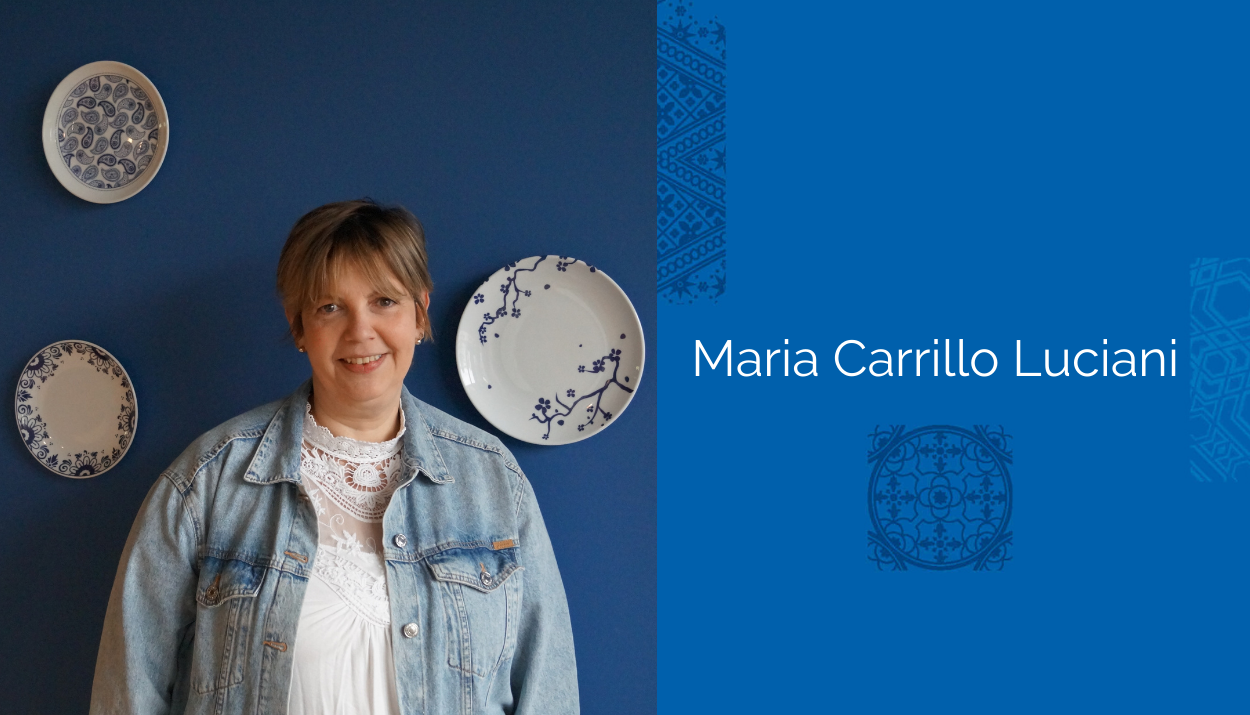“After six years, I can finally have a conversation with my mother-in-law.”
11 august 2021
She grew up in the Spanish language and taught herself English and Portuguese. So, she does have a feel for language, but she decided to enlist the help of STE Languages to learn Dutch. And that was an informed choice for Maria Carrillo Luciani (52): “First consider why you are following a language course.”
You come from Venezuela and are in a relationship with a Dutch man. How did you meet?
"I was trained as a chemist. For work, I moved from Venezuela to Brazil where I started working in a laboratory. There I met my partner. It started as a friendship but soon turned into a relationship. In 2015, he asked me to go to the Netherlands with him. I’ve lived here ever since.”
Why do you think it is important to learn Dutch?
"I want to build my own life. Learning the language is therefore crucial, because then you can communicate with everyone. I can't expect someone else to always speak English. Moreover, you miss certain interactions if you don’t master the language. That makes you feel left out and that's exactly what I don't want: my goal is to become a Dutch citizen. I’ve already passed my Civic Integration Exam.”
What's it like to build a life here?
“The Dutch are different from Venezuelans. If you settle in Venezuela, everyone wants to get to know you. Here it’s different, sometimes you almost feel like an intruder. As a foreigner, I think it is important to have respect for the Dutch way of life. That’s why you should also learn the language, because only then can you really feel at home here.”
Your native language is Spanish, but you also taught yourself English and Portuguese. Why did you choose a professional language course?
"I wanted to learn Dutch well, right from the start. If you speak the language, you’ll also understand the culture better. A course at STE therefore fits in with my aim to build a life here.”
Why did you choose STE Languages?
“I looked for information online and the reviews convinced me. STE's training system is good. The trainers are nice and encourage me to be prepared and thus do my homework. That’s important because my busy job sometimes makes it difficult to combine everything. I also like the way they teach. They ask what we encounter in daily life and use it in the lesson. I will probably tell you about this interview in the next course!”
What are your learning goals?
“I’m now at level A2+ and I want to go to B1. Most importantly, Dutch has become so familiar that it feels natural to have a conversation. I also want to be able to join a conversation spontaneously. Social interaction then becomes a real conversation instead of repeating sentences that you’ve learned by heart.”
What was the first time that you benefited from speaking Dutch?
“I always spoke English to my in-laws, but my mother-in-law only speaks Dutch. In my conversations with her, someone always had to be there to interpret. After six years, that was no longer necessary: I was finally able to have a conversation with her on my own, simply in Dutch. That was a special moment.”
Are there also benefits for your work?
"I work as a chemist. At my employer, the working language is English, so I don't have to learn the language for that. It’s true that my Dutch colleagues also speak with each other in their own language and then it’s nice if you can join in.”
To what extent do you also speak Dutch outside the course?
“Too little. Due to the pandemic, I’ve had much less contact with Dutch people, and I speak English with my partner. I'm going to pick it up again now. I already speak Dutch with my neighbours. It's nice that people react positively when I speak the language. That’s motivating.”
To what extent did the corona virus crisis affect your language training?
“STE is a good school with a pleasant atmosphere. There you meet other people from overseas with whom you can exchange experiences. Together you learn, together you develop. Due to the pandemic, we had to take classes online. That’s not my preference, because then you mainly have contact with the trainer and not with your classmates. Fortunately, we can now meet face to face again.”
Do you have any advice for new students?
“First consider why you are taking language course. I don't think it's enough to just complete integration. You need a deeper motivation, for example the need to fully participate in society. Once you’ve found your personal goal, go for it and persevere.”
Finally: what is your favorite Dutch word?
"Mooi! That's an easy word to learn and can be used in many different ways. That also applies to lekker. If you don’t know the language yet, it’s useful to learn this sort of word. With words like these, you immediately join in.”


